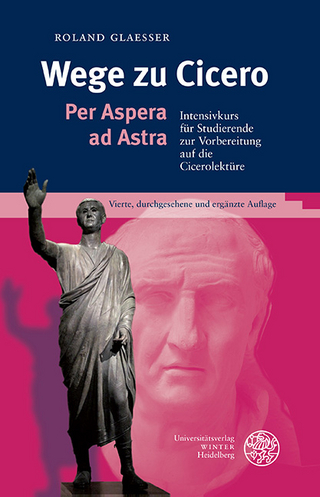
Tyranny from Ancient Greece to Renaissance France
Springer International Publishing (Verlag)
978-3-030-43187-7 (ISBN)
Orest Ranum is professor emeritus at the Johns Hopkins University, Maryland, USA, and the author of several books including Artisans of Glory (1980), The Fronde, a French Revolution (1993), and Les bienfaits, la gratitude et l'action politique (2018)
Part I Antique Understandings of Tyranny.- 1. The Athens of Plato, Aristotle, and Xenophon.- 2. Tyranny and Despotism in Plato's Republic and Laws.- 3. Aristotle on Tyranny in the Politics.- 4. Xenophon on Tyranny in Hiero.- 5. Seneca the Younger on Tyranny in On Mercy.- Part II Three Medieval Commentators on Tyranny.- 6. Mimetic Impulses and Early Receptions.- 7. John of Salisbury on Tyranny in Policraticus.- 8. Aquinas on Tyranny in the Regime of Princes and in the Summa Theologica.- 9. Giles of Rome on Tyranny in His Regime of Princes.- Part III Recovering Plato and Aristotle on Tyranny in the Renaissance.- 10. Imminence of the Past.- 11. Machiavelli on Tyranny in the Prince and the Discourses.- 12. Seyssel on Tyranny in the Monarchy of France.- 13. Guillaume Budé on Tyranny in the Education of the Prince.- 14. Erasmus on Tyranny in the Education of a Christian Prince.- 15. Thomas More on Tyranny in the History of Richard III.- Part IV A Time of Troubles in France, 1570-1590.- 16. The Valois Monarchy in Political Thought and Political Theology.- 17. Tyranny in Hotman's Franco-Gallia.- 18. Étienne de la Boétie on Tyranny in Voluntary Servitude.- 19. Bèze on Tyranny in the Right of Magistrates.- 20. Bodin on Tyranny in the Six Books of the Republic.- 21. The Vindiciae contra tyrannos on Tyranny.- 22. Mariana on Tyranny.- 23. Jean Boucher on Tyranny in the True History of Henry de Valois.
| Erscheinungsdatum | 30.05.2021 |
|---|---|
| Zusatzinfo | XIII, 178 p. |
| Verlagsort | Cham |
| Sprache | englisch |
| Maße | 148 x 210 mm |
| Gewicht | 258 g |
| Themenwelt | Geisteswissenschaften ► Sprach- / Literaturwissenschaft ► Latein / Altgriechisch |
| Geisteswissenschaften ► Sprach- / Literaturwissenschaft ► Literaturwissenschaft | |
| Schlagworte | abuse of power • Aristotle • Erasmus • Machiavelli • Plato • Political corruption • royal absolutism • Thomas Aquinas • tyrannical politics • tyrannical rulers • Xenophon |
| ISBN-10 | 3-030-43187-8 / 3030431878 |
| ISBN-13 | 978-3-030-43187-7 / 9783030431877 |
| Zustand | Neuware |
| Informationen gemäß Produktsicherheitsverordnung (GPSR) | |
| Haben Sie eine Frage zum Produkt? |
aus dem Bereich


